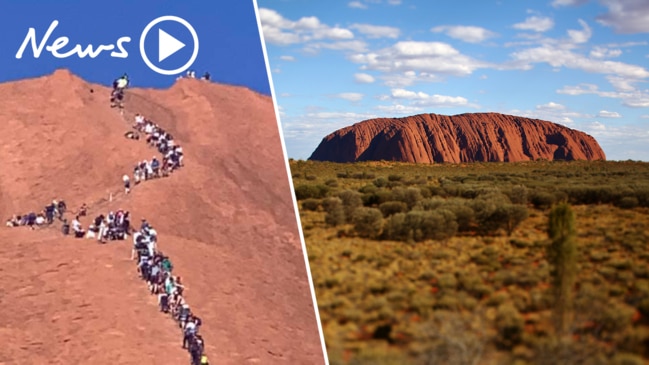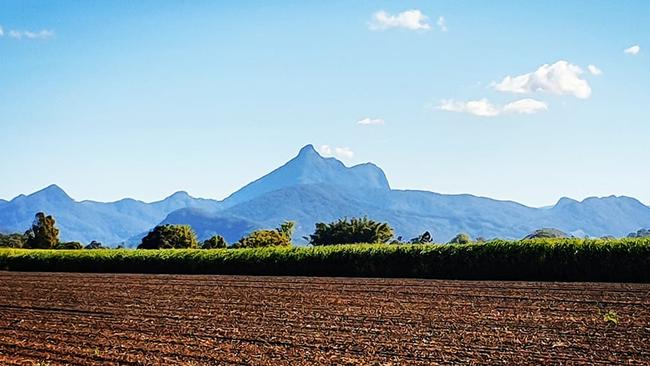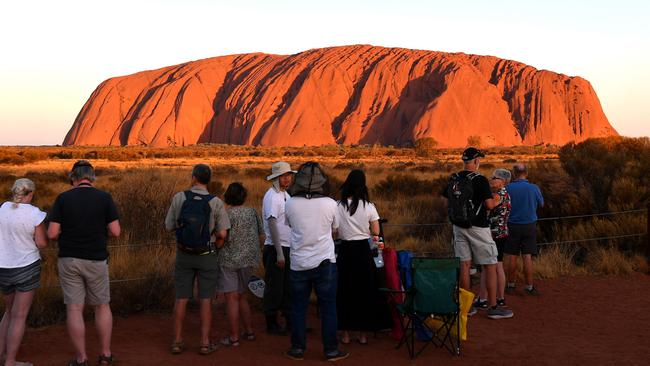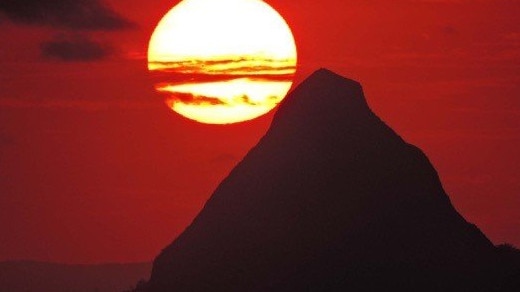Why not have climb bans at Mt Warning, Mt Beerwah, St Mary’s Peak?
As calls for an Uluru-style climb ban to be introduced to Mt Warning gains momentum, the fear of those who are used to having all the power is being laid bare, writes Tory Shepherd.

Uluru is closed, and quiet. The hordes who flocked there to queue and climb have left, finally.
If they’re not satisfied and feel like giving another metaphorical middle finger to traditional owners, they might head to Mount Warning next. Or maybe St Mary Peak or one of the other sacred sites across Australia that could be closed to tourists in the future.
Since the 2017 decision to close Uluru to tourists, campaigns to do the same elsewhere have stepped up. St Mary Peak, in South Australia’s Flinders Ranges, is one. It is part of the Adnyamathanha people’s creation story and elders have long said they’d prefer hikers to take a hike elsewhere.
MORE FROM TORY SHEPHERD: Uluru is nothing like Bondi Beach. It’s sacred
Mt Beerwah, in the Glass House Mountains is also on the list of places elders want people to stop climbing.

Bushwalking up Mount Warning (also known as Wollumbin), in NSW’s Tweed Ranges, is another. The Bundjalung people want a stop to tourists desecrating their land. (Not to mention defecating on their land). Bundjalung elder Robert Corowa told The Sunday Mail that the closure of Uluru had given their campaign momentum.
“I’m ashamed to go there,” he said. “It makes me really sad to watch people climbing it. I don’t want to let people think they’ve got the right. Money and greed is the main factor for desecration of sacred sites.”
RELATED: Mt Warning next on climb chopping block
Money and greed is only part of it. There’s also occasional obliviousness, and petty stubbornness. A bit of racism, and the sort of selfishness that sees people ignore the wishes of those whose land they’re on.
But in the broader context the dominant driver is fear. It’s the fear of the coloniser that the colonised will rise up. Or a squatter who doesn’t want to give up a space, even though the owner has been waiting patiently nearby all this time.

People who have become used to power will do whatever it takes to hold on to it. When their grip on it is threatened, they squeal and play the victim, as though giving anything up will destroy them.
Have a look at the history of Native Title in Australia; the whimpering is predictable.
In the early 1990s debate flared over the High Court’s Mabo decision, which recognised the land rights of Australia’s Aboriginal and Torres Strait Islander people.
RELATED: Popular Australian destinations face calls for an Uluru-style ban
The then Victorian Premier Jeff Kennett said people’s backyards were under threat (he later admitted he was wrong). There were wild claims about wilder compensation claims for lands taken away. The mining companies were furious.
There were letters – that turned out to be a hoax – suggesting Aboriginal people could enter private properties whenever they wanted.

All these decades later One Nation chief Pauline Hanson is saying that “a lot of people” have been dispossessed by the Mabo decision. Maybe she believes that. But it’s not true. The Native Title Act doesn’t let anyone take somebody’s private land.
Take a read through the comments sections on any stories about stopping tourists from trampling sacred ground; they’re depressingly similar and eerily familiar:
“Give them an inch and they’ll take a mile.”
MORE OPINION: Uluru climbing ban shows how fragile some people really are
“Where is it all going to end?”
“They’ll shut the whole of Oz down soon and we’ll have to pay indigenous tolls for walking around our country.”
All that catastrophising from people who’ve probably never heard of Wollumbin.
Part of me feels sorry for their misplaced anxiety. But mostly I’m flabbergasted that so many can feel so much resentment for people who have been given (back) so little.
Tory Shepherd is a columnist for the Adelaide Advertiser.
Originally published as Why not have climb bans at Mt Warning, Mt Beerwah, St Mary’s Peak?

